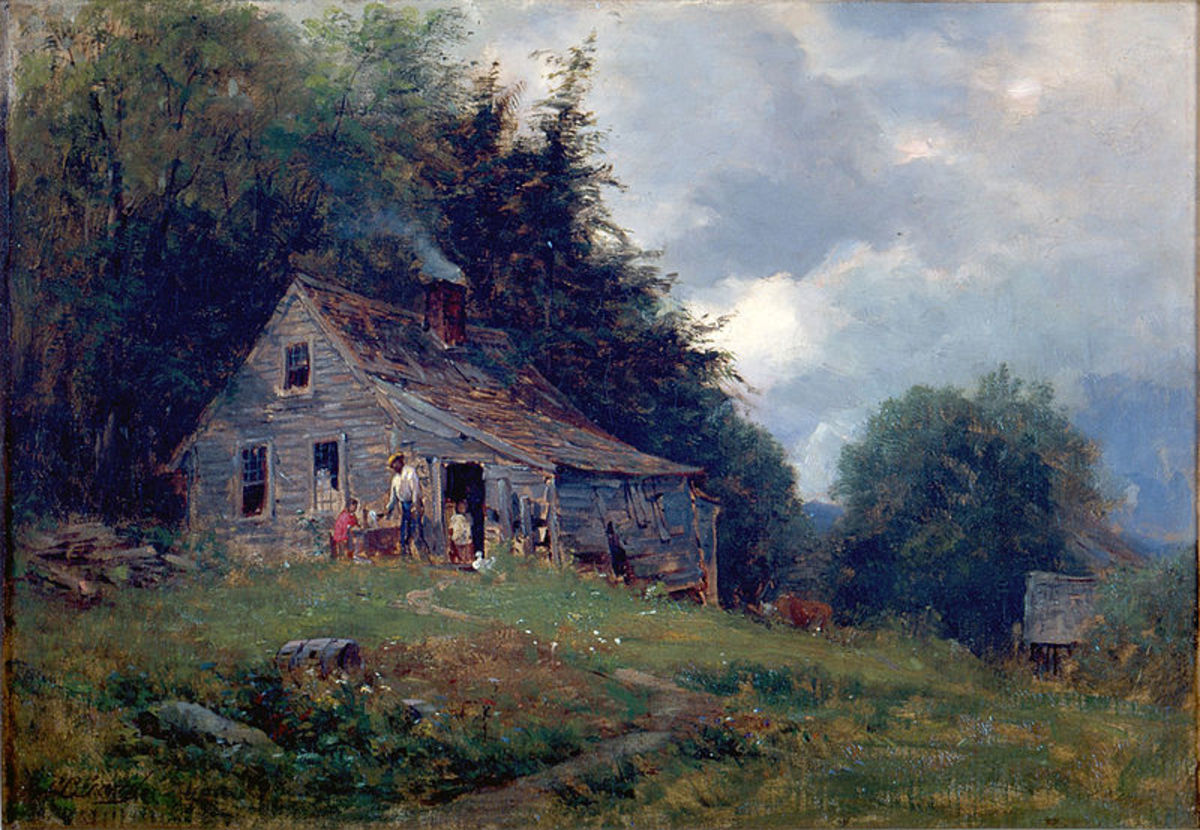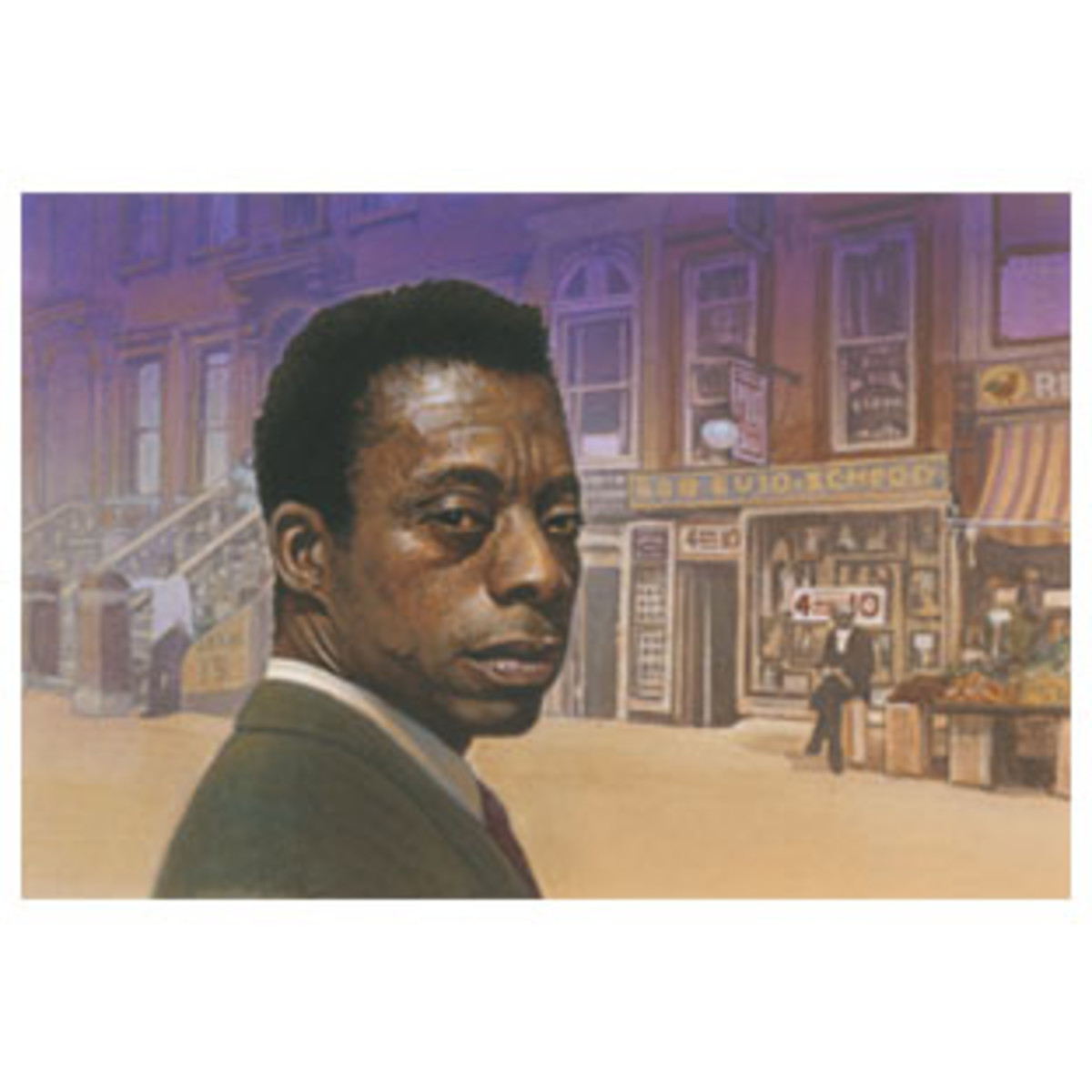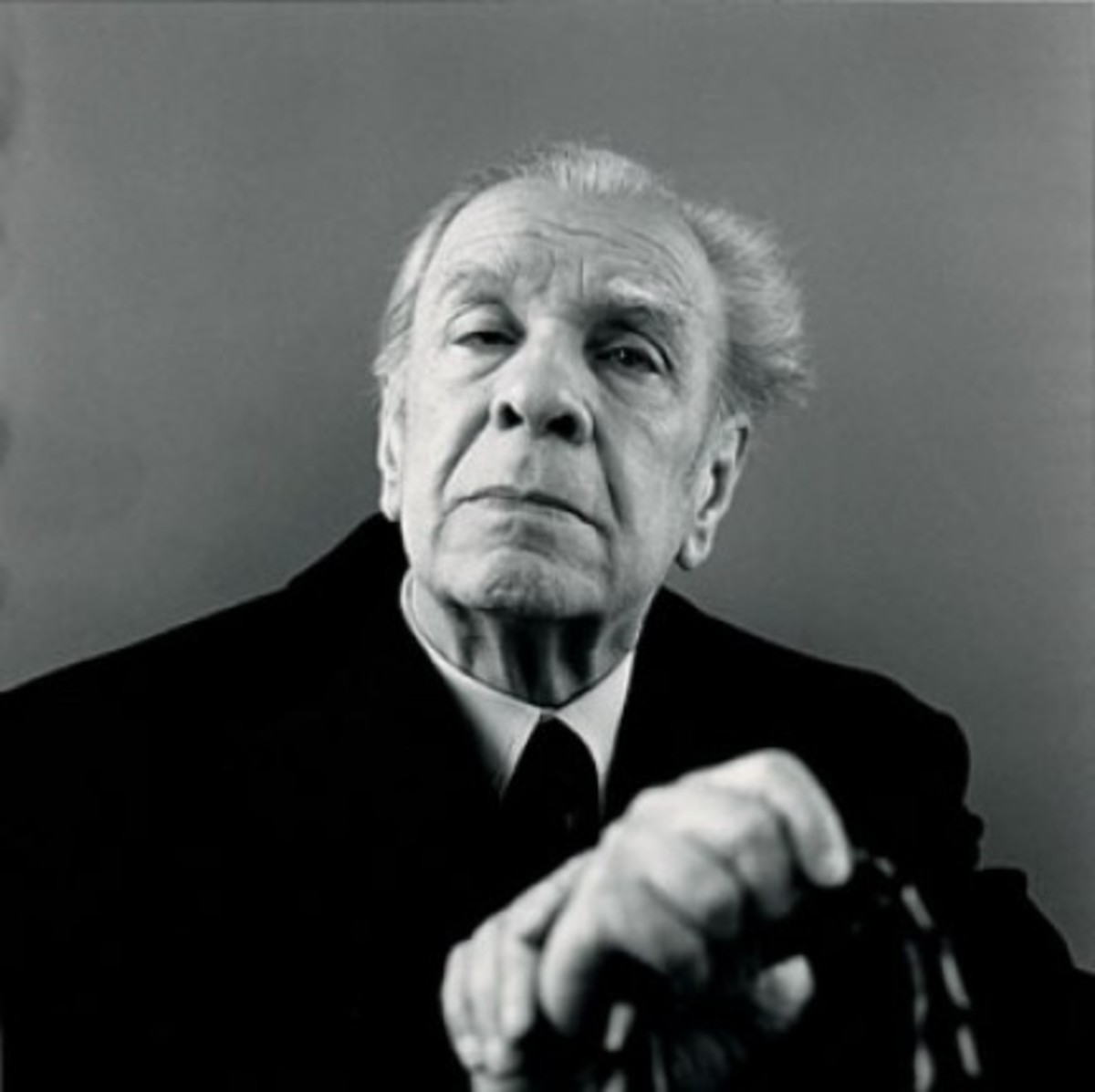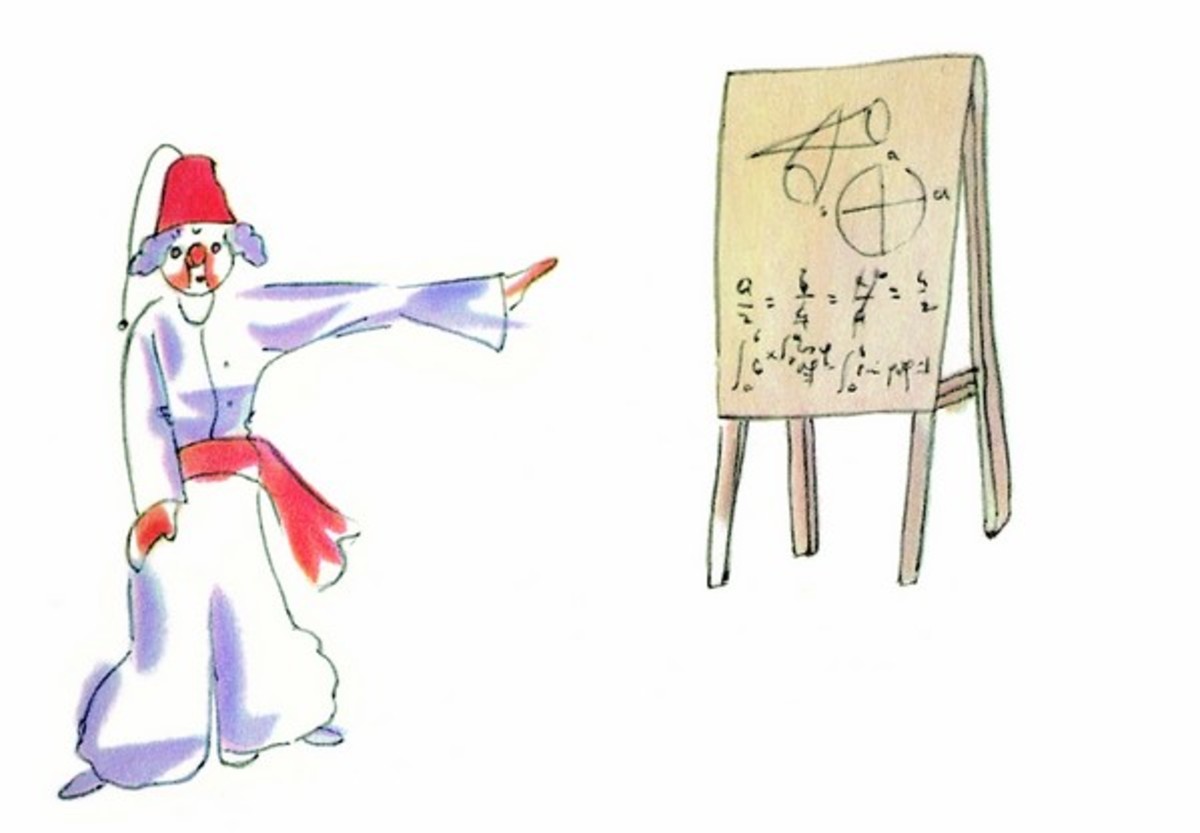Literary Criticism: The Tragedy of Joe Christmas from William Faulkner's Light in August
The Oncecylindrical Toothpaste Tube
To understand William Faulkner fully, each of his works must be understood within themselves. For it is with Faulkner as it is with any genius, the scope of their achievement can only be understood when each individual work within their work is understood. The value of this enterprise is not simply prejudicial. Such work can not only elucidate Faulkner’s work to the individual mind truly interested in encountering him one-on-one, but it can also help to delineate in real and comprehensible ways what genius is and how it happens. With Faulkner, specifically, each of his mature works is written with a different approach to achieve a different effect. These different effects and their relationships with other aspects of literature reveal, when compared with one another, the true breadth and depth of Faulkner’s literary mastery.
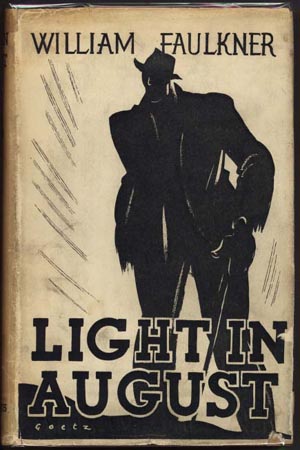
This article is specifically interested in one particular of his masterworks, Light in August. If William Faulkner’s body of work has, as critics and awards have established it has, achieved global significance, it is works like Light in August, when juxtaposed with the rest of his mature works, that have earned him this reputation. Though most of Faulkner’s novels can be called upon to attest to his brilliance, few display the tragedy of human prejudice and coincidence in such stark reality as Light in August. The novel was first published in 1932 during the height of his productivity. It remains one of Faulkner’s most powerful and masterfully realized works, not in small part because of its depiction of one of his most ambiguous, yet beloved characters, Joe Christmas. Joe Christmas got his name because he was left on the doorstep of an orphanage as a baby on Christmas day.
To understand the significance of Joe Christmas, one must understand his place within the novel, Light in August, as a whole. The novel follows Joe Christmas and Lena Grove, two outsiders to Jefferson City, as they come to town and interact with the town. Though they never meet or even know about one another, they arrive at the same time, and for a time, they represent the best thing in town to talk about. This is the same Jefferson City from Faulkner’s other novels, so understanding the town’s history can help you understand Light in August. The novel is told from the point of view of the town. It’s not clearly defined, but the general sense is that narrator is a gossip describing, Lena and Joe, to another mistrusting Jefferson City gossip. I do not mean to marginalize the Reverend Hightower’s role within the novel as he is as much an outcast as either Lena Grove or Joe Christmas, but his role is not as central to the novel, nor does he fit the mold both Lena and Joe fit.
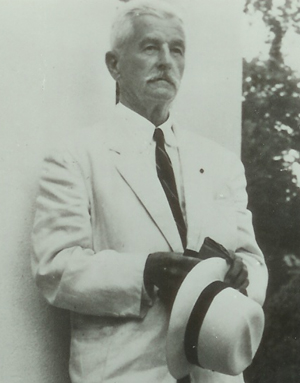
Though Lena and Joe have a lot in common, particularly the fact that their fates are both determined largely by chance and issues outside of their control, there is one central fact about them that is different. Lena Grove’s tale is comedy, and Joe Christmas’s is tragedy. As one reads the novel, it is only natural to search for clues to discern why this is. They both come to Jefferson with a past. Lena is barefoot and pregnant and has walked all the way from Alabama looking for the father of her unborn child who was a migrant worker that mysteriously disappeared when she turned up pregnant. Having been turned out by her devout family for shame, she makes a simple decision to follow after the father of her baby. She survives on Christian charity and leaves a wake of gossip a mile wide as she bow-leggedly makes her way to Yoknapatawpha County. It’s obvious that the father of her child is nowhere near Jefferson as he has left false trails all over the south. It’s also obvious that her odyssey to find him was a hopeless enterprise the moment she set off barefoot out her front door. Despite all this, Lena Grove’s tale is filled with warmth, humor, and a charm that appears to appease the narrator.
Joe Christmas, on the other hand, comes to Jefferson City and tragically ends up being shot in public there. The reason that Joe’s story is tragic and Lena’s is not is not insignificant within the novel or within Faulkner’s work. The reason has to do with a few things that happened to Joe Christmas as a child. These events are significant because they not only explain Christmas’s disposition and development, but also reveal how Faulkner faithfully recorded the world he lived in, even if the story he saw wasn’t the one that people wanted to hear. To understand Joe Christmas, we have to start at the beginning.
The crucial issue for Joe Christmas and Faulkner’s excruciating telling of the scenes that shaped his fate because of it, remains one of his most honest yet harsh sections of any of Faulkner’s novels. Joe Christmas’s childhood was harsh at best. Given Christmas’s centrality to the novel, it cannot be forgotten to approach his character in the context of the larger history of the south. This being said, Joe Christmas begins life as an orphan, and as fate and good old fashioned American prejudice would have it, it was no accident that made him an orphan.
Read Faulkner on Kindle!
Light in August spends a long time describing the childhood of Joe Christmas. It spends much longer of Christmas’s past than any other characters, and it is correct to infer from this that his past is the most important to the novel and its themes. His earliest memories are of the orphanage where he was left on the doorstep on Christmas Day. This is where he got his name. The first and dominating image of the orphanage is “a corridor in a big long garbled cold echoing building of dark red brick” (131). Faulkner describes details that impress upon us the things that dominate Joe’s memory. This technique is highly effective in developing a bond between Joe Christmas and the reader. Joe Christmas’s childhood begins innocently enough, but that is because he is ignorant of the crime he committed, of the crime the exiled him to the life of an orphan, of the crime that he would never be done being punished for.
While it is true that Joe Christmas was already guilty before he arrived at the orphanage, it was when he committed his second crime that his fate was finally sealed. You see, in the “quiet and empty” corridors of the orphanage at night, Joe Christmas developed a habit of sneaking into the bathroom to get a hold of a toothpaste tube (131). Joe Christmas had never seen toothpaste before the new dietician moved in. She was young and pretty, and she smelled good, but the best part was the pink toothpaste that she kept in a tube. To a little orphan boy like Christmas, those midnight trips to the bathroom to eat the dietician’s toothpaste were the highlight of his simple existence. He’d never known anything so wonderful as that pink toothpaste.
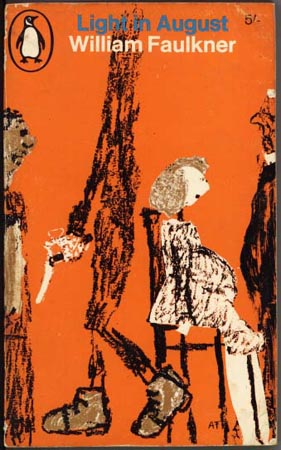
Christmas sneaks toothpaste from the Dietician for over a year. As Faulkner states, the dietician came to make Christmas think of “something sweet and sticky to eat, and also pinkcolored and surreptitious” (132). His mind is filled only with thoughts of candy. Unfortunately, for Joe Christmas having a sweet tooth has direct consequences. Late one night while Christmas is in the tub eating toothpaste, the young dietician bumbles into the bathroom with a man. The Dietician is obviously distressed about the fact she is being pressured while in the bathroom. She pleads with her “Charlie” to wait till later, but the young man is aggressive and will not be deterred (133).
Joe Christmas may have survived one of the strikes against him, but the crime of bad timing coupled with the fact he was stealing tastes of toothpaste at night would have dire repercussions on him. Literally, he was in the wrong place at the wrong time. It is important to note that Lena Grove was, in her own way, no less and no more of a victim of circumstance than Joe Christmas was. The difference between them was something else. It was a secret Joe Christmas had that he didn’t even know he had. Joe started out as an orphan who just wanted some toothpaste—a simple, all-too-human catalyst for such an ultimately harsh sentence that Joe Christmas would mete out.
Now, Joe Christmas did not meet such an end without some help. It took misunderstanding, hatred, and pride to condemn Joe Christmas. The same misunderstanding, hatred, and pride William Faulkner saw with his own two eyes growing up in the south. He may a fictitious, but the true tragedy of Joe Christmas is that his tragedy is real. This illustrates one of Faulkner’s main themes within all of his novels: the struggle of the human heart in conflict against itself. How other characters interact and why they do what they do determines the fate of Joe Christmas. Faulkner’s brilliance in this is his effective portrayal of simple things in the lives of insignificant people that remind us of our past transgressions as a nation and species. His characters experience their ancestors and their own transgressions for themselves, within their hearts.
William Shakespeare's Linguistic Genius
- Literary Origins: Shakespeare's Creative Wordplay: A Linguistic Analysis of Hamlet's Catachreses.
The reputation of Hamlet as one of Shakespeares greatest plays often times overlooks one of the greatest achievements of the play. While many scholars acknowledge the play as the birth of the modern...
Joe Christmas is one of those characters. Things go from bad to worse for little Joe Christmas when, startled by his interruption before he realizes they don’t know he is behind the shower curtain, he finds the excitement has caused him to squeeze on the tube harder and instead of stopping eating the toothpaste like he normally would, he has gone on and on till he realizes his error because he begins to feel ill (132). Faulkner makes it clear that Christmas was innocently ignorant of the sexual activity going on just outside the curtain he hid behind. He did not remain silent to watch, rather he was scared and just hid. By the time Christmas realizes he has eaten too much, it is too late. The toothpaste “was no longer sweet. In the rife, pinkwomansmelling obscurity behind the curtain he squatted, pinkfoamed, listening to his insides, waiting with astonished fatalism for what was about to happen to him” (134). As soon as he becomes ill, he is discovered by the dietician.
The dietician is young and worried about her position at the orphanage. She knows her behavior is shameful and that if Joe talked, she’d be in trouble. She immediately accuses the now ill and dumbfounded Joe Christmas of spying on her. Here Faulkner demonstrates more of his mastery of his craft: The characters, as they most likely would in real life, misunderstand one another. Christmas is sure he is in trouble for eating the toothpaste and vomiting on the floor. He is also completely unaware of anything inappropriate in the behavior of the Dietician or the man she was with, in other words, her fears of what he might do were completely unfounded. In complete contrast, the Dietician is so hysterical and self-absorbed that she was, as Faulkner put it, “stupid enough to believe that a child of five not only could deduce the truth from what he had heard, but that he would want to tell it as an adult would” (135). In one of Faulkner’s most accurate reflections of the real world: if only just one of these two characters could have know what the other was really thinking, then everything, all the foolishness that these and other characters do to one another—all the things we do to one another, could be avoided.
Haven't Read Faulkner?
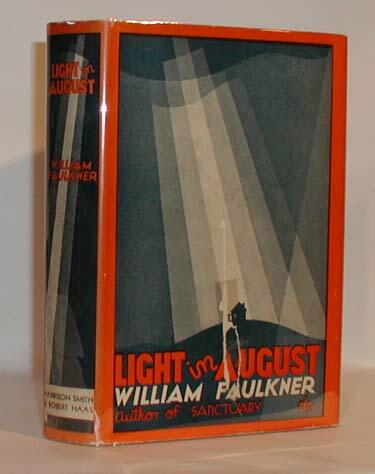
With fidelity to our history, the web Faulkner weaves does not end there. The Dietician is beside herself. Faulkner tells us that “on the fourth day she became quite calmly and completely mad” (138). It would be comedy, except for the ending. In this state, she turns to a character she has never noticed before, but who has been there as long as Joe Christmas, “a figure, almost a fixture, of which she had been aware for five years now without ever once having looked at him” (139). The figure, called Doc Hines, is, though neither Joe nor the dietician knows it, Joe Christmas’s grandfather. Unfortunately for Joe Christmas, his grandfather’s heart is filled with hatred and pride. Also, unfortunately as well, he knows Joe Christmas’s dark secret.
To understand how a man could spy on his grandson in an orphanage for five years without ever telling anyone who he is, you have to understand Doc Hines. He is religious man and strictly so. Like many southerners who Faulkner knew growing up, Doc Hines was convinced in his interpretation of the Bible, and would not, or perhaps could not, change his belief system. So, as often happens with Faulkner, Doc Hines becomes much more complex than a simple character. Ultimately, Doc Hines has it in for Joe Christmas because he believes from the bottom of his soul that Joe Christmas is an abomination born of sin and fit for nothing but sin.
Fittingly, as the dietician becomes crazier, here and Doc Hines argue over Joe. She confides in him to see what she should do about the child if he tells. Doc Hines reacts with condemnation yelling at the dietician for her “womansinning and bitchery,” which only angers and incites her to action even more (141). It is during this altercation that Doc Hines lets the dietician know what it is that is so wrong with Joe Christmas. Doc Hines is convinced that there is a strong chance that Joe Christmas is “part n****r[1]” (142). The argument leads the dietician to form a plan to protect herself from Joe Christmas using his knowledge against her: tell the head of the orphanage that Joe Christmas is part black, and naturally he will be sent away (142). This is not exactly what Doc Hines wanted, as he wasn’t exactly positive Christmas was part black. If he was positive, he wouldn’t have spent five years watching him trying to figure it out.
[1] Faulkner has been criticized for his use of this word. A moment should be taken to explain his use of the word. William Faulkner was raised in a society that still used this word as it had been originally used. As with any issue of human folly, without authentic documentation by the people who saw this and heard it with their own ears and own eyes, our ability to prevent our children from repeating our mistakes is greatly impaired. For this reason, though it is callous and offensive, Faulkner’s use of the word is important. In fact, it is this word alone that truly points out the difference between Lena and Joe. It is this fact alone that made his story a tragedy. To leave out the word would be to soften the accusation of inhumanity Faulkner levels at racism through the story of Joe Christmas. Anyone who seriously feels Faulkner is racist for allowing his characters to use that term need only continue to read his work to discover the truth. For these reasons, I feel the inclusion of it here is important. I mean no offense and only wish to respect those who have and whose have been held down in inhuman ways by the mentality behind this term by showing how Light In August records the truth of the bitter ugliness of what they struggled against.
Doc Hines as the Devout Prejudiced White Man
You see, Doc Hines was a Christian and it was inconceivable to abandon his own flesh and blood, unless of course they were black. It does not appear certain he was actually convinced Joe Christmas did have black blood in him as much as it sounds like he was still attempting to convince himself of this, so before even Doc’s hatred was ready to condemn Christmas—the dietician through her ignorance had. If Faulkner’s characters sound insane, it is only to remind us of the insanity and misery that is our own legacy.
From this orphanage, Joe Christmas is adopted by a poor and strict religious man who tried to be a good father, but who ultimately taught Joe to not trust authority or religion. This left him with no place left in society. Each scene from that time on shows his continual alienation by his own decisions. Just as Christmas had chosen to eat the toothpaste—his own decisions would be shaped by the struggles of his heart against itself. He learned to recognize the look of someone thinking he was part black, and for that reason, as well as the way his foster father treated him, he developed a tough persona that would only get him into more trouble. Ultimately, this persona, coupled with his dark secret, would lead him to be shot to death in public by his own grandfather, Doc Hines.
Faulkner’s ability to fully realize these emotional complications through the way characters interact instead of through abstraction shows the mastery of his technique. His replication of this attention to individual detail across the scope of his body of work shows his work to be that of a master in full control of his facilities. That is to say, the scale Faulkner chose to write on, the rules he defined for his own literary universe—these things in themselves show the same tender attention to fidelity of the human story that scenes like Joe Christmas and the tube of pink toothpaste are remembered for.
Is it no wonder, then, that the true difference between Joe Christmas and Lena Grove, and make no mistake this is the difference that divides tragedy from comedy, was not anything within Christmas himself? It was no accident that Faulkner made certain to let the reader know that no one knew if Joe was really partially black or not. The point was that the tragedy was in the hearts of others who looked at him and judged him for this. They ultimately didn’t care who he was, they just cared what he looked like. This is the true tragedy of the South, and of human history: that we can both simultaneously good to someone like Lena Grove and despicable to someone like Joe Christmas for no other reason than our own prejudice. Faulkner’s Light in August is no easy work to encounter, but the way he juxtaposes the stories of Lena Grove and Joe Christmas and the lessons that juxtaposition can still teach us today will forever be one of Faulkner’s greatest literary achievements.
Joe Christmas stands as one of the most tragic figures in 20th century American Literature. His story, unfortunately, is our legacy, and lest writers like Faulkner remind us of the follies of our past, and unless we truly listen without prejudice, we will be doomed to repeat that legacy for our children. The human heart is fully capable of authoring its own misery, but then it’s also capable of comedy, compassion, and sacrifice. That Faulkner’s work could be grand enough to include far more books and themes and considerations than just this work alone is the reason why he won the Nobel Prize for Literature and is also the reason why he continues to inspire serious minded American writers even today.
All quotes are from the corrected text as published by Vintage International.
More Hubs about William Faulkner
- How to win a Nobel Prize for Literature even if you can't sell a book: Reflecting on William Faulkne
When William Faulkner was awarded the Nobel Prize for Literature in 1949, his works in the United States had been out of print for almost a decade. While writers like Steinbeck and Hemingway dominated the... - The Great American Anti-Hero: Faulkner's Thomas Sutpen as the Uniquely American Version of Joseph Ca
We have a few old mouth-to-mouth tales; we exhume from old trunks and boxes and drawers letters without salutation or signature, in which men and women who once lived and breathed are now merely initials...
Other Hubs about American Literature
- American Literature Classics: Interpreting the Climax of Edgar Allen Poe's Fall of the House of Ushe
In his The Philosophy of Composition Poe tells us that he begins writing with the consideration of an effect (1598). Almost all of Poes poetry and fiction give evidence to support Poes... - Kurt Vonnegut's Version of the Fairytale Bluebeard: Writing About Writing For People Who Don't Read
Kurt Vonnegut, one of the most prolific if not best American writers of the second half of the twentieth century, first earned a reputation for himself as a science-fictionist with his early works, The Sirens... - Books You Should Own, But Probably Don't. Part 2: 20th Century American Literature: Postmodern Postm
This is part two in a continuing series of hubs all of which are designed to inform and guide anyone who might want to know a little bit more about the rich tradition of art, letters and philosophy we have...






